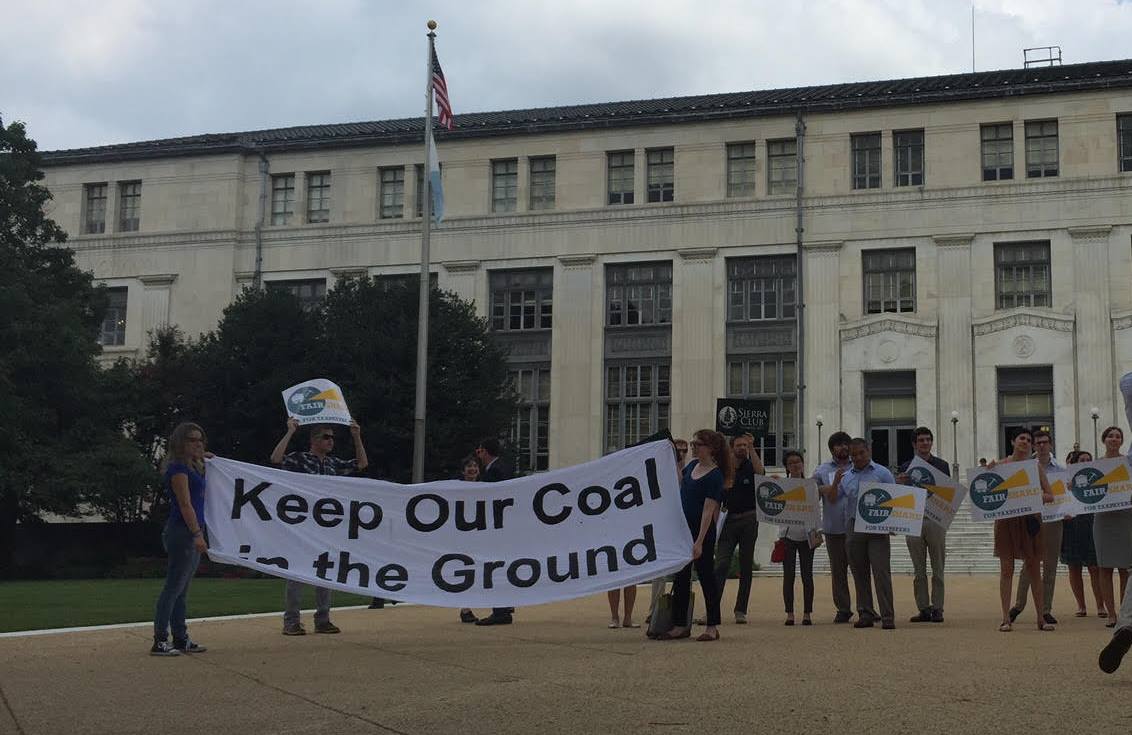In the Powder River Basin (PRB), everything seems larger than life. The impossibly blue skies stretch on forever over rolling grasslands speckled with buttes. At the height of summer, herds of pronghorn antelope mix with ranch cattle seeking shaded gullies in the almost-endless sagebrush.
Come around a bend in the road, and you’ll suddenly come upon another oversized part of the landscape: the largest coal strip mines in the United States, where giant shovels (some over 10 stories tall) scrape away soil to reach their dirty product. The PRB, stretching from northeast Wyoming into southern Montana, generates 40 percent of our nation's coal, more than any other region. Much of this coal comes from taxpayer-owned public lands. So why are coal companies being given a sweetheart deal to extract it? That was the focus of public listening sessions across the West that just wrapped up, as the Obama Administration considers making changes to the federal coal leasing program.
The Bureau of Land Management, part of the US Department of the Interior, oversees America's taxpayer-owned lands in the PRB and manages them "for a variety of uses" including recreation, ranching, and energy development. To make management decisions, the BLM ranks these activities. For decades, the agency has considered mining to be one of the high-priority uses for federal public lands. Approximately 90 percent of all federal coal mined comes from the Powder River Basin, where the BLM has turned over more than 160,000 acres of prime ranching, hunting, habitat, and recreation land to Big Coal.
In return for being allowed to disrupt, degrade, and even destroy public lands, coal companies are supposed to pay royalties to both federal and state governments that help fund schools, roads, and other public programs. But the current royalty rate for strip-mined coal has been in place for almost 40 years and is grossly outdated and undervalued, leaving plenty of opportunities for Big Coal to find loopholes in the guidelines. As a result, over the past 30 years, taxpayers have been shortchanged to the tune of around $30 billion in lost coal royalty revenues. What's more, the BLM's priorities are profoundly out-of-step with President Obama's climate action plan, giving coal companies financial incentives to mine and burn millions of tons coal from Western states that already are feeling the heat from climate disruption.
Acknowledging this dissonance at a speech earlier this year, Interior Secretary Sally Jewell said it was time to hold an "honest and open conversation" about reforming the federal coal program. Well, now that conversation has begun.

In August, the Sierra Club and its partners united for a series of hearings on the federal coal program by the BLM's parent agency, the Department of the Interior. Four of the five sessions took place in the heart of coal country, so it's no surprise that Big Coal brought senior executives out in number. But Interior probably did not expect to hear from so many passionate community members who asked BLM to reform the federal coal leasing program. These individuals, who included ranchers, members of tribal nations, local elected officials and faith leaders, asked Interior and the BLM to stop subsidizing the profits of coal companies on the backs of taxpayers, hold those companies accountable for cleaning up mines when the work is done, and stop prioritizing carbon-polluting coal at the expense of our climate and other land uses. Here are some of the highlights:
- In Billings, Montana, people who testified in support of coal leasing reform outnumbered coal company supports by a ratio of 3:1:
"It's time that you crack down on coal companies that have been getting sweetheart deals for too long," said Renette Kaline, of the Northern Cheyenne Indian Tribe. "You must take a look at what you’re doing and the ripple effect it has on our lives, our land."
- In Gillette, Wyoming, long a stronghold of coal companies, a small group of activists asked Interior to support an economically diverse future for Wyoming and facilitated live video testimony from state finance experts who could not attend in person.
- In Denver, more than half of people testifying supported coal reform, including local businesspeople who spoke about the impacts of climate change on other state industries like skiing and winter tourism:
Keith Baker, a town trustee in Buena Vista, said he thinks climate change brought about by carbon emissions has hurt his southern Colorado town. The town, dependent on outdoor-focused tourism, has seen decreasing snowpack, a shorter snow season and a drying up of key irrigation, he said.
- In Farmington, New Mexico, Native American, Hispanic and Latino activists led a multi-coalition effort to dominate the hearing, with 60 people supporting reform and only three speaking against it:
"Our lands are being auctioned off to coal companies for pennies," said Colleen Cooley of Diné Citizens Against Ruining Our Environment. "Our communities, specifically Diné tribe, have not prospered from coal for the last 50-plus years. Poverty and unemployment, we're still at 50 percent unemployment, we're still at poverty-level conditions ... We need to start transitioning to cleaner energy now."
The news was just as powerful from the public hearing in Washington, D.C.
Citizens are standing up against the coal industry’s loopholes - and you can help too. The conversation has begun, and we need you to add your voice. Take action today to tell the BLM to stop the coal giveaways!
